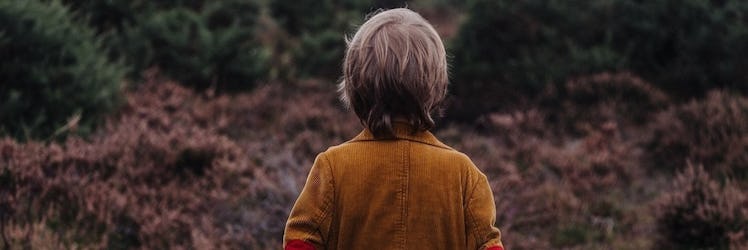Why I Finally Went Looking For The Mother Who Gave Me Up For Adoption
It never mattered, and then suddenly it mattered.

The following was syndicated from Quora for The Fatherly Forum, a community of parents and influencers with insights about work, family, and life. If you’d like to join the Forum, drop us a line at TheForum@Fatherly.com.
Why do many adopted people actively avoid trying to track down their biological parents?
I’m in my 50’s. I’ve known I was adopted since I was 3 or 4. There was a little book, explaining how it all worked in very kid friendly terms. My sister was also adopted, a year and a half after I was; my brother was not.
It was known, openly discussed in our family, but once everyone was on board with the underlying facts, it wasn’t a topic of conversation. In fact, I don’t recall it being mentioned at all for decades at a time.
READ MORE: The Fatherly Guide to Adoption
When I was in high school, it came up in an unexpected way. My girlfriend did some really egregiously over the top things that offended my parents, who insisted that I break up with her immediately. I declined. In the predictable fallout from that, in a fit of pique, she suggested that I move out and “find my real parents”.
I was shocked, to put it mildly. As far as I was concerned, the people that raised me were my “real parents.” That conversation (and the ones that followed) did more damage to my relationship with her than with my parents.
Through my 20s and 30s, I never really thought about it. I mean, like at all. It was part of the fabric of my life, part of the wallpaper. It just was.
In my early 40s, some things happened that set me to thinking. A therapist suggested that some of my attachment issues might be deeply seated in that whole “given up for adoption at birth” thing, and set me on a course of reading, material from authors who supported that concept.
I gave it some thought. I signed up for a registry, and nothing happened. I stopped thinking about it.
Some years later, not long after marrying my wife, we got pregnant. And that set a whole new chain of thoughts into motion. My wife had grown up not knowing her father, or actually even knowing who he was, and had only met him a few years prior in her late 30s. She talked about how hard it was with her older kids, having to cross out whole sections on medical intake forms and write in “Unknown.” How scary it was to wonder what genetic predispositions they might have to unknown conditions.
She earnestly suggested that I might not want to experience that, and that our unborn child might also want to have that information, and contact with actual biological family.
I hesitated. I dragged my feet. I prevaricated. Eventually, I re-contacted the registry — and discovered that I hadn’t heard anything because I’d not correctly filled out my intake form. I corrected that, and instantly got a response back from a researcher.
I had a name. Lucy Smith.
For me, there might or might not be closure in it. For my son, there’s a chance of having an extended family that he’d never have otherwise.
I had some back-story, thanks to my high school girlfriend. Her mother had been the assistant to the attorney that handled my adoption paperwork for my parents, and she knew stuff that I hadn’t been told. That my mom was 16 at the time, from somewhere in Oklahoma. That she was very much in love with a slightly older boy, had gotten pregnant, and had wound up being forcibly separated from him and put in a home for unwed mothers.
From there, I had facts. I knew the name of the establishment, knew the name of the hospital I was born in, and had enough of a case to petition for opening my sealed adoption records, based on medical need.
The file was empty. Literally, empty. Nothing. No contents.
It pretty much let the air out of my balloon. I halfheartedly did some more research and learned that the particular home for unwed mothers where my biological mother wound up was ultra-protective of its girls, and that they frequently used pseudonyms for the girls both in the house and at the hospital. And that they’d been closed for some time, and the organization which inherited custody wasn’t open to disclosure, and had been accused of destroying records in the past.
Was “Lucy Smith” a fake name? Or possibly worse, a real one? And what’s the path to finding an answer? I sure can’t find one.
For me, there might or might not be closure in it. For my son, there’s a chance of having an extended family that he’d never have otherwise.
I’d be delighted for his sake if there were an answer, but the trail I have is old, and cold, and protected by people who are guarding the secrets of the past from a sense of morality that’s past its expiration date. If I had more to go on, I’d still be looking.
Stank Hanks’ writing has been published by Forbes, Slate, and Inc. You can read more from Quora here:
This article was originally published on